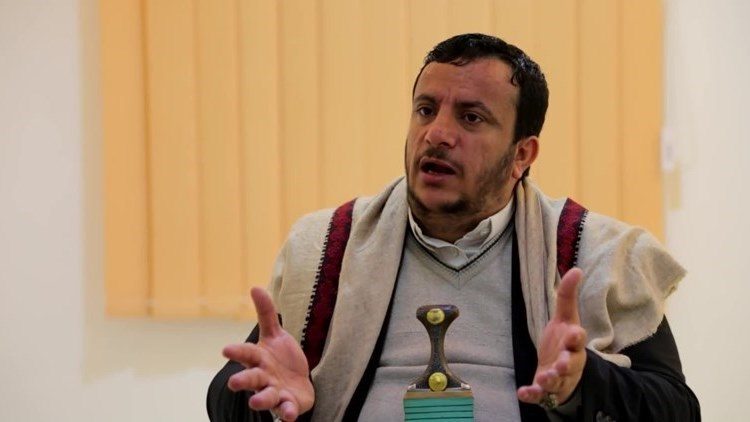Ansarullah Member: “Saudi regime has failed to shuffle cards in Yemen”
Member of the political bureau of “Ansarullah,” Ali al-Qahoum, said on Wednesday that the problem of Yemen is an external problem as a result of external ambitions in the Yemeni geography, which has a strategic location.
This came in a symposium held by the Ministry of Human Rights on the occasion of the passage of 3,000 days of national steadfastness in the face of the Saudi-led coalition war.
Al-Qahoum added, “The Saudi regime has failed to shuffle the cards by calling that what is happening is a Yemeni-Yemeni problem,” referring to the shameful position of the United Nations, which is far from what is going on in Yemen in terms of crimes and siege.
He pointed out that the position of the leadership in Sanaa and the people is firm in the direction of peace with purely humanitarian demands, including reopening the airport, paying salaries, and others, while the coalition countries are trying to overcome these demands.
Al-Qahoum stressed that “the reluctance of Saudi Arabia and the Americans to give the Yemeni people their rights would be confronted by the people by extracting those rights and entitlements.”
For her part, Akhlaq al-Shami, Secretary General of the Motherhood and Childhood Council, said, “More than 10 million children suffer from aggression, and nearly 6 million children are at risk of dropping out of education as a result of the war and the siege.”
Professor of Political Science at Sanaa University, Amin Al-Ghaish, pointed out that “it is not possible to understand the background of the Saudi aggression in the present unless it is linked to the past with Tanumah massacre, the killing of the former president Ibrahim Al-Hamdi, and previous events.” He indicated that the legitimacy that Saudi Arabia raised and the protection of its southern borders is just a pretext for its aggression against Yemen.
Rashid Al-Haddad, economic expert, argued that the economic war preceded the military aggression with a cold war that began decades before and turned into a blatant war with direct economic strikes.
Al-Haddad noted that the repercussions of the blockade of oil derivatives represent a war of genocide against the Yemeni people.

